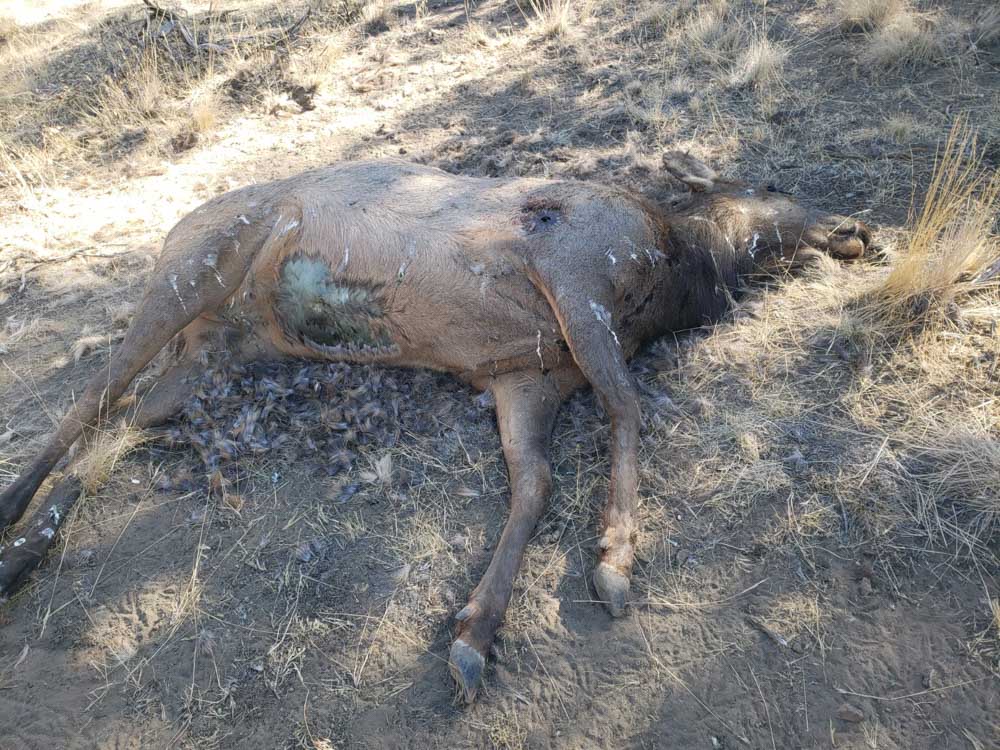Below is a news release from the Oregon Department of Fish and Wildlife.
Two elk were recently poached and left to waste near Hwy 26 in Clatsop County in the northeast corner of Oregon. Members of the public who heard shots fired or noticed unusual activity near the Hwy 26 rest stop or near McGregor State Forest Road on or about Oct. 15 or 16 should contact Oregon State Police.
Both elk were found on private timber lands, but not together. The cases are likely not related according to Oregon State Police Fish and Wildlife Senior Trooper David Herman.
OSP Senior Trooper Herman found the first elk lying in torn sod and muddy ground and in the early stages of decomposition. The elk was likely shot a few days earlier, on Oct. 14 or 15.
He located the entry wound; a rifle shot to the spine, taken from behind the animal. Herman suspects someone shot the elk on Clatsop County forest land near the Hwy 26 rest stop, likely in the area of the first few miles McGregor State Forest Road.
The second elk was killed in an unknown location, with an unknown weapon on or about Oct 16. The poacher removed the head, two legs and the back strap. The poacher transported most of the animal by vehicle to the Sugarloaf Mainline and dumped the carcass down an embankment near milepost 1.5. This is also near milepost 5 on Hwy 26.
A Lewis and Clark Timberlands employee found the carcass and reported it to Senior Trooper Herman. Herman investigated the dump site and estimates the bull was a large trophy but is not certain without the head. He suspects the elk was taken from a nearby herd.
Herman is concerned about the number of poached deer and elk he has investigated over the past two years. He says the number is on the rise in the area.
“I’ve found at least 15 elk killed off-season in the last couple of years,” he said, “And those are just the ones that we get called about. There are many more that we don’t find.”
Roosevelt elk are indigenous to the Oregon coast range. An estimated 59,000 “Rosies” meander among mossy trees and brush on their treks from mountainside to seashore via fields, housing developments and major roadways. They can grow to 1,100 pounds and are the third largest mammal in North America. Oregon has regular coast elk hunting seasons each fall.
If you have any information, call the Turn In Poachers (TIP) Line at *OSP (*677) or 877-452-7888.
The Turn In Poachers program will award four hunter preference points or $500 for information that leads to a citation in either of these cases.
For 2020, Remington partnered with the Rocky Mountain Elk Foundation to increase the visibility of poaching incidents in an effort to reduce poaching nationwide.
(Photo source: Oregon Department of Fish and Wildlife)
